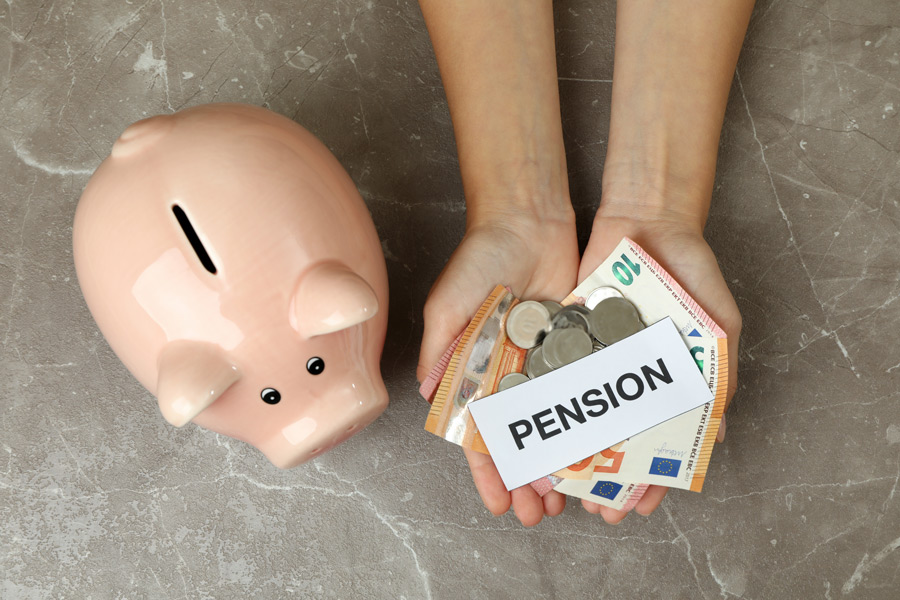If you’re starting a pension in Ireland, it’s important to understand how contributions work, the tax benefits available, and how to plan for your long-term retirement goals. First-time pensioners often have questions about how much to contribute, the different types of pension plans, and how to make the most of tax relief.
At Q Financial, we guide you through the process of starting a pension in Ireland, helping you calculate your contributions, explore unlocking options, and ensure your retirement plan fits your personal goals.
Planning for retirement can seem difficult. Especially, if you’re new to the idea of pension contributions.
We promise it is worth it, and we are here to talk with you if you have any questions. Having a pension which you regularly contribute to, will help you save money for your future.
Knowing the basics and taking simple steps can help you secure a comfortable retirement.
Here are some essential tips for first-time pension contributors in Ireland.
Compare Pension Providers across Ireland with a few clicks: Start Pension Application Here
Understanding Pension Contributions
A pension is a savings plan for your retirement. You, and often, your employer (check with your employer to see if they offer contributions towards your pension) will contribute to it regularly. This money is invested to grow over time, giving you income when you retire.
Types of Pension Contributions
In Ireland, there are different types of pension contributions:
- Regular Contributions: These are the regular payments made by you and at times matched by your employer.
- Additional Voluntary Contributions (AVCs): These are extra payments you can make to increase your pension fund.
- Single Contributions: These are one-off payments, often used to make up for missed contributions or to boost the pension fund significantly.
Talk to Expert Pension Advisors in Ireland, free consultation call. With Q Financial Advisors, you get access to a regulated financial advisor. They will examine the costs and charges associated with your pension and do a full comparative analysis among all regulated pension providers available. Talk to Q Financial today to find out your best pension options, getting ahead of auto enrolment.
Tax Benefits of Pension Contributions
One big advantage of contributing to a pension in Ireland is the tax relief. Contributions are deducted from your gross pay before tax, reducing your taxable income. The amount of tax relief you can claim depends on your age and income.
| Age | Maximum Pension Contributions (% of Earnings) |
| Under 30 | 15% |
| 30-39 | 20% |
| 40-49 | 25% |
| 50-54 | 30% |
| 55-59 | 35% |
| 60+ | 40% |
For example
You are 35 years old and you earn a salary of €50,000 annually. You can contribute up to €10,000 to your pension and, being on the higher salary tax bracket, you will receive 40% tax relief on that €10,000. (20% relief for people on the lower tax bracket)
Starting A Pension Early
Starting early with your pension contributions is important. The sooner you start, the more your money can grow thanks to compound interest.
Here’s an example:
| Age | Monthly Contribution (Before Tax Relief) | Monthly Contribution (After Tax Relief) | Total Savings by Age 68 |
| 25 | €400 | €240 | €265,000 |
| 35 | €565 | €339 | €265,000 |
| 45 | €870 | €522 | €265,000 |
| 55 | €1,800 | €1,080 | €265,000 |
From the table, you can see, the later you start, the more you need to contribute each month to reach the same savings goal.
Choosing the Right Pension Plan
The type of pension plan you choose will depend on your job:
- PAYE Employees: You can choose from Personal Pension Plans, Personal Retirement Savings Accounts (PRSAs), or Occupational Pension Schemes from your employer.
- Self-Employed: Options include Personal Pension Plans or PRSAs.
- Company Directors: Options include Executive Pension Plans or PRSAs.
Each plan has its pros and cons, so it’s a good idea to get advice that’s tailored to your situation.
Review and Adjust
Check your pension plan regularly to make sure it fits your retirement goals and financial situation. Adjust your contributions if your income changes or if you receive extra money.
Seek Professional Advice
Pension contributions can be complex. It’s often helpful to talk to a financial advisor. They can help you understand your options, maximize your tax benefits, and create a retirement plan that works for you. Get a free consultation call.
Conclusion
Starting your pension contributions early, and understanding the different options can make a big difference in your retirement financials. By taking simple steps and getting professional advice, you can set yourself up for a secure future. Consistency, informed decisions, and regular reviews are key to a successful pension plan. Start today and work towards a financially secure retirement.








